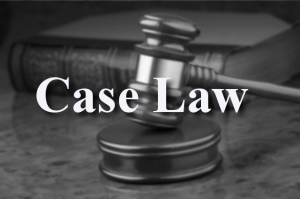 Death in service benefit is something that a number of employers offer their employees as a part of their overall Pension or Health Insurance packages. This can provide for the partners of the employee anywhere from two times to five times their salary, upon their death if still in employment.
Death in service benefit is something that a number of employers offer their employees as a part of their overall Pension or Health Insurance packages. This can provide for the partners of the employee anywhere from two times to five times their salary, upon their death if still in employment.
However two recent cases have highlighted some other obligations on an employer towards their employees, should they pass away whilst still in employment.
Annual Leave
In the case of Bollacke v K+K Klaas & Kock BV & Co KG Case C-118/13, a case was taken by the spouse of an employee who had passed away. The Court of Justice of the European Union ruled that the spouse was entitled to receive payment in lieu of her husband’s annual leave entitlement (of 140 days which had accrued due to a long term absence due to illness) when he passed away.
This restated that a worker’s annual leave entitlement, outstanding at the time of death, passes to their estate. The Court stated that if a worker was no longer entitled to be paid for annual leave by reason of his death, this would lead to a total loss of the entitlement to paid annual leave, which is protected by the EU Working Time Directive.
Unfair Dismissal
In the case of Crinion v Nowtel Europe Limited (UD900/2011) a case was taken by the personal representative of the deceased, against an employer (now in liquidation) for unfair selection for redundancy. The liquidator conceded the case and detailed that a redundancy payment of €7296.00 and a payment of €2,400.00 in respect of Minimum Notice had already been paid. The Tribunal then determined that the claimant was unfairly selected for redundancy and awarded the sum of €73,344.03 under the Unfair Dismissals Acts, 1977 to 2007. Further to this The Tribunal felt that loss having been established they awarded the sum of €3,686.04, this being the balance of four weeks gross pay, under the Minimum Notice of Terms of Employment Acts, 1973 to 2005.
The basis for this claim is that the Unfair Dismissals Acts state that they apply to “employees” and defines employees as: “"employee" means an individual who has entered into or works under (or, where the employment has ceased, worked under) a contract of employment and, in relation to redress for a dismissal under this Act, includes, in the case of the death of the employee concerned at any time following the dismissal, his personal representative.”
It should be mentioned that as this case was uncontested it is likely why a large award was made, and had this been contested it could have led to a very different outcome.
These two cases described above clearly demonstrate that even when a person has passed away their rights under employment law can remain and there is potential that an employer will still need to address any outstanding payments to an employee or potentially defend any claims in Tribunal.
